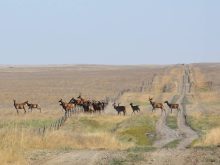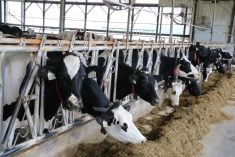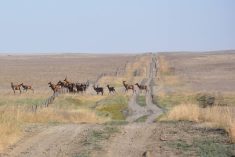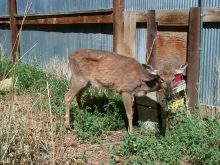The consultation period for the proposed changes to the Chronic Wasting Disease Control Program has been extended to Nov. 21.
The Canadian Food Inspection Agency is seeking feedback on proposed changes to the program, which is intended to improve risk management in farmed cervids and better meet the needs of partners, industry, stakeholders and consumers.
CFIA employees and the public can give their thoughts on the changes here.
Read Also

Canadian Food Inspection Agency slammed for handling of bovine tuberculosis case
The federal government leans heavily on producers to “take one for the team” and risk their livelihoods without any reassurance of support.
The proposed changes will move away from mandatory herd destruction and toward a regional, management-focused approach to control disease spread. The new proposed CWD control program will recognize regional variability in CWD status for the purposes of CWD risk management.
It will consider CWD to be established in a province or territory where CWD has been detected in wild or farmed cervids for two or more consecutive years. The CFIA will consider CWD to be emerging in a province or territory where CWD has been detected in some wild cervid populations for two or more consecutive years, but not in farmed cervids.
Under the proposed program change, CFIA will consider CWD to be established in Alberta and Saskatchewan, emerging in Manitoba and not detected in the rest of Canada. Under the new proposed program, CFIA will not order the destruction of CWD-infected herds in Alberta, Saskatchewan and Manitoba.
CWD is spreading across Canada. The disease is established in wild cervids in Saskatchewan and much of Alberta. New cases are continually detected in cervid farms and wild cervids in the two provinces.
CWD has also been found in Québec in 2018 and was detected in British Columbia in wild cervids in January 2024. Since 2021, Manitoba has been searching for CWD in wild cervids. Other provinces have not seen any CWD in their wild cervid populations and there is no CWD in the wild populations of caribou either.
To date, there has been no known transmission of CWD to humans and no direct evidence to suggest CWD could be transmitted to humans. However, there is always an uncertainty for zoonotic (animal to human) cross-species transmission.
Under the proposed change, CFIA will work collaboratively with provinces not affected by CWD to carry out eradication measures if the first case is detected in a farmed cervid, on the condition that the relevant provincial or territorial wildlife authority carry out similar eradication measures in wild cervids near the infected farm. This response will prevent further spread of CWD into other parts of Canada.
Restrictions on movement of live cervids from CWD-infected herds are controlled under CFIA’s Cervid Movement Permit policy. Live cervids originating from CWD-infected herds in Canada will continue to be permitted to move only to terminal locations (abattoirs or terminal hunt farms) if allowed by provincial or territorial authorities.
The CFIA’s current CWD control program encourages disease prevention and early detection by focusing response action on CWD-infected herds enrolled in the CWD herd certification program (HCP), found to be compliant at level D or higher through CWD HCP compliance evaluation.
The CFIA takes response actions in CWD-infected herds not eligible for the CWD compartment response. These can include placing a quarantine, tracing epidemiological links to other cervids herds and conducting confirmatory testing.
The second goal of the current CWD Control Programs applies to all CWD-infected farmed cervid herds and aligns with Health Canada’s recommended precautionary approach to keep cervids known to be infected with CWD out of the commercial food supply.
Currently, all CWD-exposed cervids (those from CWD-infected farms) must be tested for CWD. Their results must be negative before their consumable products can be released into the marketplace.
Questions can be emailed to CWD-MDC@inspection.gc.ca
















